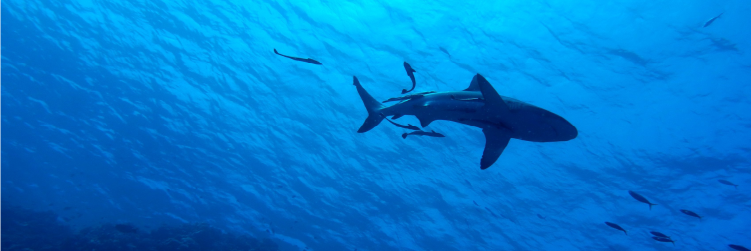Taiwan's improved shark protection policy makes Taiwan a leader in ocean conservation in Asia
(Taipei, Taiwan) July 12, 2011 – The Environment & Animal Society of Taiwan (EAST) and Humane Society International (HSI) commend the Taiwanese Fisheries Agency’s announcement to strengthen its shark management measure and implement “fins-naturally-attached” policy beginning next year. This is a remarkable decision, given the fact that Taiwan is the world’s No. 4 shark catching countries, according to a recent Pew report.
“The new fins-attached regulation will do away with the loophole-filled fin-to-carcass ratio regulation. It sets Taiwan apart from the rest of its Asian counterparts and puts Taiwan on a par with the United States and other countries that are leaders in shark and ocean protection. With Taiwan being one of the top shark catching and fin trading countries in the world, Taiwan’s shark management policy would impact a great number of shark populations and species,” said EAST’s director Yu-Min Chen.
“Fins-naturally-attached policy is what many conservationists and experts have concluded as the best way to prevent shark finning. We are glad to see Taiwan follow in the footsteps of the United States and a growing number of Latin American countries, such as Costa Rica, Panama and Colombia, to implement this measure,” said wildlife campaigns manager for HSI, Iris Ho.
“With the support of Humane Society International and Pew, the Cost Rican government held several workshops, including the one at the 29th meeting of the United Nations Food and Agriculture Organization Committee on Fisheries in Rome earlier this year, to promote fins-attached policy. EAST and HSI extend their support to help the Taiwanese government provide training workshops and materials in order for the Taiwanese fishermen to fully understand and comply with this new regulation.”
Several countries have taken a step further and have created “shark sanctuaries” in their waters. They include Taiwan’s diplomatic allies, Palau and Honduras, and the Maldives.
The two organizations also call for the government to add more observers on Taiwan’s pelagic fishing vessels and send inspectors to foreign ports that are usual destinations for Taiwanese fishing vessels.
EAST aims to address the roots of problems, with ongoing research to uncover animal cruelties and injustices that society would otherwise not be aware of. We believe that effective change needs to happen at a legislative, public administration and judicial level as well as through awareness-raising and institutional education. We also believe that human welfare is closely linked to animal and environmental protection, hence also work against the degradation of the environment and actively promote freedom of government information, and democratic participation in public policy-making in Taiwan. Website : www.east.org.tw
Humane Society International and its partner organizations together constitute one of the world's largest animal protection organizations — backed by 11 million people. For nearly 20 years, HSI has been fighting for the protection of all animals through advocacy, education, and hands-on programs. Celebrating animals and confronting cruelty worldwide — On the Web at hsi.org.












